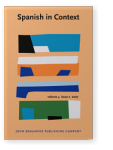Vol. 4:2 (2007) ► pp.241–262
La mancha del plátano
Language policy and the construction of Puerto Rican national identity in the 1940s
The present work seeks to identify sources of the persistent link between the Spanish language and national identity in Puerto Rico. By examining mass media discourse in the 1940s as a turbulent period of language policy conflict between Puerto Rico and the U.S. federal government, I suggest that the federal imposition of language policy without the consent or approval of local politicians or educators was influential in the construction of national identity that included language as a major defining factor. Local elites reacted to the colonial hegemony by defining Puerto Rican identity in opposition to American identity. The construction of identity in the 1940s is characterized by a cultural conception of nation that redefined national symbols, such as language, in social rather than political terms in order to avoid disturbing the existing colonial hegemony.
Cited by
Cited by 5 other publications
This list is based on CrossRef data as of 14 june 2024. Please note that it may not be complete. Sources presented here have been supplied by the respective publishers. Any errors therein should be reported to them.
